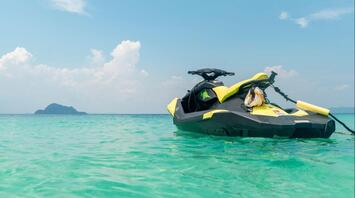New Watercraft Safety Law: What Travelers Need to Know

A jet skier from Southampton was cautioned by the Maritime and Coastguard Agency (MCA) for reckless behavior near Cowes Harbour. While enjoying the scenic waters around Cowes Harbour, the jet skier dangerously crossed in front of a ferry, coming within meters of its bow. This forced the ferry's captain to take evasive action, preventing a collision. The incident occurred on the busy last day of Cowes Week, a popular time for tourists and boating enthusiasts.
For travelers planning water activities, it’s crucial to understand that maritime laws apply to all watercraft, including jet skis. Violating these laws can have serious consequences.
To ensure a safe and enjoyable experience, it's important to be aware of the new watercraft safety regulations that have been implemented. These rules are designed to protect everyone on the water, and understanding them can help you avoid any legal issues or dangerous situations.
Stay Informed: Before setting out, check for any local advisories, weather conditions, and specific regulations that might affect your activities. Knowledge is key to a safe experience.
Operate Responsibly: Avoid reckless behavior such as speeding, sharp turns, or weaving through traffic. Always be considerate of other waterway users to prevent accidents.
Wear Safety Gear: Ensure that you and your passengers wear life jackets at all times. Your watercraft should also be equipped with necessary safety equipment, such as fire extinguishers, flares, and a whistle.
Stay Sober: Operating a watercraft under the influence of alcohol or drugs is not only illegal but also highly dangerous. Stay sober to ensure you have full control over your watercraft.
Regular Maintenance: Keep your watercraft in good condition. Regular maintenance checks can prevent mechanical failures that could lead to accidents on the water.
Education and Training: Consider taking a boating safety course. These courses provide valuable knowledge on operating watercraft safely and effectively.
By following these guidelines, you can contribute to a safer environment on the water. Whether you're a seasoned watercraft operator or a novice, prioritizing safety ensures a pleasant and memorable experience for you and those around you.



















